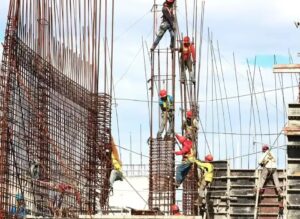Accidents at oilfields are an all-too-common experience for many workers. These dangerous worksites contain countless hazards that can do substantial damage. Improper maintenance on machines, chemical hazards, and fall risks can lead to catastrophic injuries. Injuries can cause expensive medical treatment, lost time at work, and much more.
An oilfield worker needs to know whether compensation is available and from where. Injured victims must understand the differences between workers’ compensation and personal injury claims in oilfield accidents.
Common Oilfield Hazards That Cause Injury
There are many dangers at oilfields. Some are obvious, such as fast-traveling commercial trucks carrying large payloads. Others are more hidden, such as the risk of benzene exposure. Common hazards and injuries workers face include:1
- Fire and explosion accidents
- Motor vehicle collisions
- Slip and fall accidents
- Exposure to benzene and crude oil
- Breathing damage
- Loss of hearing or eyesight
- Traumatic brain injury
- Wrongful death
These risks and so many others may require a workers’ compensation or personal injury claim, depending on the circumstances of the case. One of these options should help an injured person recover physically, emotionally, and financially following an oilfield accident.
What Is Workers’ Compensation for Oilfield Workers?
The workers’ compensation system is designed to help workers injured on the job recover. It is supposed to provide medical coverage and financial help after an injury or work-related illness. An employer may carry workers’ compensation insurance coverage to protect the victim, but the system also helps protect employers.2
Workers’ compensation benefits typically include:
- 100% coverage of all medical expenses
- Lost wages
- Permanent disability pay or temporary disability pay
- Vocational rehabilitation
- Death benefits
- Ongoing care costs
- Funeral costs
These benefits are typically paid after the injured worker applies for them. The application process can seem daunting, but a qualified workers’ compensation attorney can help.
Damages Limitations in Workers’ Compensation
One of the primary benefits of a workers’ compensation claim is that the victim does not have to prove negligence to win compensation. However, this benefit is offset by a significant limitation. Injured oilfield workers are not entitled to pain and suffering or other non-economic damages when applying for workers’ compensation benefits.
This means that the emotional trauma and suffering the oil worker went through is not compensated, as it might be in a personal injury claim.
Denial of Workers’ Compensation Claims
Many oilfield workers receive the unpleasant and shocking news that their workers’ compensation claim was denied. Many valid claims are denied for reasons such as:
- The company alleges the worker failed to notify it of the injury
- The company argues that the injury is a pre-existing condition
- The employer argues that the injury did not occur from work-related activities
Employees may think the battle is over when they receive a denial. However, there is a claim appeal process that may help get the claim approved. The process is highly technical, but an oilfield worker does not have to go through it alone.
Personal Injury Claims in Oilfield Accidents
Personal injury claims are very different from workers’ compensation claims. These cases operate in tort law rather than a strict statutory system created for workers’ compensation. Personal injury cases cover a wide range of conduct and claims, including much of what occurs in oilfield accidents. They require that the injured person prove negligence. Negligence occurs when:
- The defendant has a duty of care toward the plaintiff
- The defendant breaches that legal duty
- That breach directly causes the plaintiff’s injuries
- The plaintiff sustains damages due to those injuries
Proving negligence requires substantial evidence, including witness testimony, documentary evidence, and more. A skilled personal injury attorney knows how to present the case and maximize the potential for success.
Compensation in Personal Injury Claims
Both economic and non-economic damages are available in personal injury claims. Economic damages commonly include:
- Past and future medical costs
- Costs of rehabilitation services
- Costs associated with accommodating a new disability
- Lost wages and lost earning capacity
- Property damage from the accident
- Funeral costs in wrongful death actions
Unlike workers’ compensation claims, non-economic damages are available in most personal injury lawsuits. Non-economic damages usually include:
- Pain and suffering
- Loss of enjoyment of life, also known as loss of consortium
- Disfigurement and scarring
- Grief
Should My Case Be a Workers’ Compensation Claim or a Personal Injury Lawsuit?
Oilfield workers are in a unique situation, especially depending on where they work. Workers on land may have different legal rights from those who work at sea. This creates a challenging legal puzzle. Oilfield employees should seek advice on which claim is right for them.
A workers’ compensation claim is typically appropriate when:
- The employee’s injury occurred while at work
- The oil company is part of the workers’ compensation system
- The worker experienced compensable damages
A personal injury claim may be more appropriate if:
- The employee was injured while not working
- The injured person is not an employee but was harmed by an oilfield accident
- The oil company does not carry workers’ compensation coverage
- The injured person is an independent contractor
Does My Employer Have Workers’ Compensation Insurance?
Not every oil company has to carry workers’ compensation insurance. In Louisiana, most employers must have it. In Texas, however, companies are not obligated to do so. Instead, they can elect to participate in workers’ compensation or require that injured workers file a personal injury claim instead. This means that an employee can sue a company directly, opening up the possibility of receiving compensation for non-economic damages.
Maritime Law and Oilfield Accidents
If a worker was injured on an onshore rig, they may be entitled to compensation through the Longshore and Harbor Workers’ Compensation Act instead of regular workers’ compensation. This requires different criteria and entitles an injured worker to different benefits.
To complicate things further, those working on offshore rigs may qualify under the Jones Act. This maritime law covers those who spend at least 30% of their working time on a vessel covered by the act. A qualified maritime attorney understands which law applies best to an injured worker’s situation.
Know the Differences Between Workers’ Compensation and Personal Injury Cases for Oilfield Accidents
Understanding the basic differences between these two legal categories can help an injured worker get started on their claim. The injured oilfield worker could be owed substantial compensation, but they must know how to pursue it. An oilfield accident attorney is prepared to help.
Sources:





